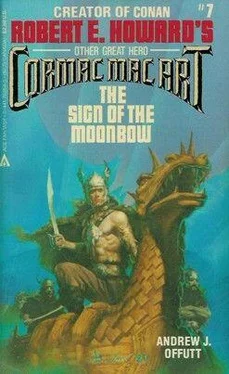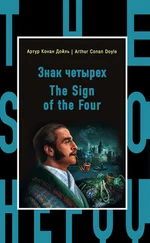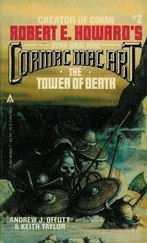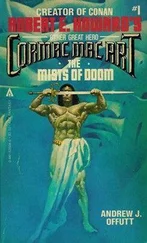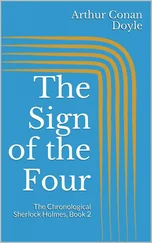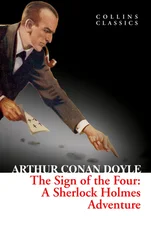Andrew Offutt - The Sign of the Moonbow
Здесь есть возможность читать онлайн «Andrew Offutt - The Sign of the Moonbow» весь текст электронной книги совершенно бесплатно (целиком полную версию без сокращений). В некоторых случаях можно слушать аудио, скачать через торрент в формате fb2 и присутствует краткое содержание. Жанр: Фэнтези, на английском языке. Описание произведения, (предисловие) а так же отзывы посетителей доступны на портале библиотеки ЛибКат.
- Название:The Sign of the Moonbow
- Автор:
- Жанр:
- Год:неизвестен
- ISBN:нет данных
- Рейтинг книги:3 / 5. Голосов: 1
-
Избранное:Добавить в избранное
- Отзывы:
-
Ваша оценка:
- 60
- 1
- 2
- 3
- 4
- 5
The Sign of the Moonbow: краткое содержание, описание и аннотация
Предлагаем к чтению аннотацию, описание, краткое содержание или предисловие (зависит от того, что написал сам автор книги «The Sign of the Moonbow»). Если вы не нашли необходимую информацию о книге — напишите в комментариях, мы постараемся отыскать её.
The Sign of the Moonbow — читать онлайн бесплатно полную книгу (весь текст) целиком
Ниже представлен текст книги, разбитый по страницам. Система сохранения места последней прочитанной страницы, позволяет с удобством читать онлайн бесплатно книгу «The Sign of the Moonbow», без необходимости каждый раз заново искать на чём Вы остановились. Поставьте закладку, и сможете в любой момент перейти на страницу, на которой закончили чтение.
Интервал:
Закладка:
Aye, was true; Cormac mac Art said that one should never kill save when it was necessary. And aye, it was distressingly true that in his thrice-hard life it had often been necessary that he deal death-lest it be dealt him.
He followed the lambish siblings he had rescued. Understand them? Understand Daneirans, conceive of Daneira and those who walked without wariness and caution and without weapons? Cormac mac Art could not, and it was no happy man who followed the long black hair of Consaer and Sinshi through the forest.
They came to Daneira.
First there was a vast sprawling field that had borne corn and flax. In a huge sickle-shape it was laid out, connecting far ahead of Cormac to a tall and steep hill. At its base lay Daneira, a sprawling town all of wood. It appeared to have grown naturally there, among trees grown up over the years or left standing long ago. The hill backed the village; to its left a stream ran, coming down and around the hill and burbling off into the woods that, apparently, otherwise covered the island. The land across the stream had been cleared but for a few spaced trees; there these people had their gardens.
No wall or even palisade enclosed Daneira. It was open to the breeze and the sun-and to attack, Cormac mused grimly. The only enclosures were for the animals they kept, and these Sinshi told him were pastured on around the hill, which was mostly rock and scrub behind the village.
Strange, Cormac mac Art thought; there were no dogs. Nor saw he either cats or fowls. Well inland these people had laid out their settlement, though surely some trekked to the sea to fish, and mayhap others brought down birds in the forest. And gathered birds’ eggs?
Sinshi and Consaer had thrown him constant glances, all along the way. Now all stared at the approaching trio-at the tall man in mail.
Daneira, Cormac saw, was beautiful. It gave pleasure just from the looking on it. The buildings were beautiful, superbly constructed with never a nail, and intricately adorned with carvings and with shells, with enamels and paints that were bright and bespoke happy people. He recognized the style and pattern of the decor, but only from relics of Eirrin’s distant past and on weathered rocks. How long had Daneira been here? Had there been no influx, no newcomers at all to bring trouble or new ideas, decorations, tools?
He saw naught that resembled weapons.
The people stared. They were small, no man above five and three quarters feet in height and most nearer five and a half. Black or dark brown was the hair of all, all , and brown or seemingly black their eyes, while their skin was as if deeply tanned. Aye, Consaer and Sinshi were typical. Could they be of Rome? Surely not Gaels, with their dark soft eyes. The Daneirans stared in silence at the tall man with his deepset pale eyes and his twinkling metal clothing. Aye, for there was no armour, though he saw leather aplenty; this was not armour but superbly tanned, softened hides of their goats and their sheep and their pigs. Feathers he saw, worn as decoration, and shells and crafted things, and dyed wool and flaxen linen coloured in hues drawn from sea creatures and the plants of the woods, pleated and wrinkled.
The people of Daneira seemed healthy enough, and happy as well, though it was hard to be sure of the latter; all froze to stare at the clinking stranger whose coat and helm and burden of axes caught the sun’s light.
Daneira was small. Less than a thousand people were here, all of one race and looking indeed as if sprung from a single family, one dusky, brown-eyed family whose hair ranged in hue from blackest night to medium brown. Oh, and aye-all were short of leg and unusually long of face.
The houses were sizable all, not peasantish or skimped in construction or, presumably, in inner space. He saw new decor, but no new homes. How long had the population been stable or declining? He had no, idea. Of the answers to many questions concerning these people, he had no idea.
Consaer and Sinshi led the Gael-the only Gael, as there were no Germanic peoples or fair Celts-to one of the homes. A murmurous crowd followed, staring but without clamour. A calm, complacent folk.
A man in a long blue tunic, without leggings, came hurrying and intersected their course as they reached the house. Cormac saw swiftly that this was a physician, concerned with the wound to Consaer’s head. Dark hair, dark skin, dark eyes. He entered the house of blue and green and brown with them, onto flooring that was gleaming, finely fitted hardwood planking strewn with rugs of dyed sheepskin and one that was intricately woven of coloured woolen yarn. A warm home it was, to mind and body both, with gourd-pots and pottery pans and a lute or something similar, a set of pipes, and various other utensils of the household of a farmer who was not starving.
Cormac mac Art saw no weapons, no armour.
The ax within the door was long of handle-a woodsman’s tool. There were other such tools, on nicely wrought and braced shelves.
The stranger with the odd grey eyes was welcomed by parents and the brother of Consaer and Sinshi, while the physician sat Consaer down and examined him. After congratulating Sinshi on her swift application of the proper herbs, he applied more, and a thick oil of some sort. Consaer’s younger brother Lugh helped him press together the edges of the wound and wrap his head tightly, around and around, with a cloth of undyed linen. Sinshi meanwhile vanished through a doorway into one of the house’s two other rooms.
Duach and his wife Elathu were neither ruddy nor fat, and it occurred to Cormac that he had seen no truly fat people among all the villagers. Too, most of these people’s longish faces held an elfin or birdlike quality, with no fleshy deposits lying beneath the skin, so that it was stretched directly over the bone. No one was round of face, or square either, like some of the blond northerners.
“You have saved my son and daughter from death and worse, Cormac mac Art,” Duach told him, a short rangy man with a beard of black-shot auburn. “Anything that is Duach Fedach’s son is yours.” His brown eyes unashamedly aglisten with tears, Duach son of Fedach of Daneira swept his arm in a gesture that included all his household.
“I would ask naught in recompense, Duach mac Fedach,” Cormac said. “But I would beg that which ye have that I’ve tasted not in many, many days-I see milk and I smell roasted pork.”
A hand came onto his arm then, a small hand whose skin was cooler than his, though of the same hue. Large walnut eyes looked up into his face from a pretty elfin visage in which the bone structure was unusually defined, even among the Daneirans. Already Sinshi was back from another room, having changed from her brother’s tunic into one of her own, blue linen over a pair of russet leggings of leather so soft it looked like wool. The girl was lovely, pretty as a tiny and fragile woods-flower.
“Sit, Cormac mac Art who saved me. I will serve you milk of the freshest and pork enow for ten, and be the milk not fresh I shall go and coax more from one of the goats, for we have seven!”
He caught the emphasis, and knew that Sinshi spoke with pride. In Eirrin, wealth had long been measured in cattle. Here, he realized, it was goats. Though seven was hardly a herd for the bragging of.
“It’s happy I’ll be with it, Sinshi, freshest or no, for I’m long without: Duach,” he said, instantly shifting his gaze to her father and dropping his pleasant expression. “Daneira is in danger, all Daneirans. Aye, and goats and sheep and hogs. Those men who attacked yours and whom I slew-they cannot have come here alone. Your people must prepare.”
Duach looked uncomprehending-or as if he thought Cormac did not understand. “We have seen none from outside but yourself, Cormac mac Art, not in any lifetime or in my father’s. Never have I seen such eyes, the colour of steel. We will offer these men what we have-food and drink. There is naught else, and what more can they want or ask?”
Читать дальшеИнтервал:
Закладка:
Похожие книги на «The Sign of the Moonbow»
Представляем Вашему вниманию похожие книги на «The Sign of the Moonbow» списком для выбора. Мы отобрали схожую по названию и смыслу литературу в надежде предоставить читателям больше вариантов отыскать новые, интересные, ещё непрочитанные произведения.
Обсуждение, отзывы о книге «The Sign of the Moonbow» и просто собственные мнения читателей. Оставьте ваши комментарии, напишите, что Вы думаете о произведении, его смысле или главных героях. Укажите что конкретно понравилось, а что нет, и почему Вы так считаете.
